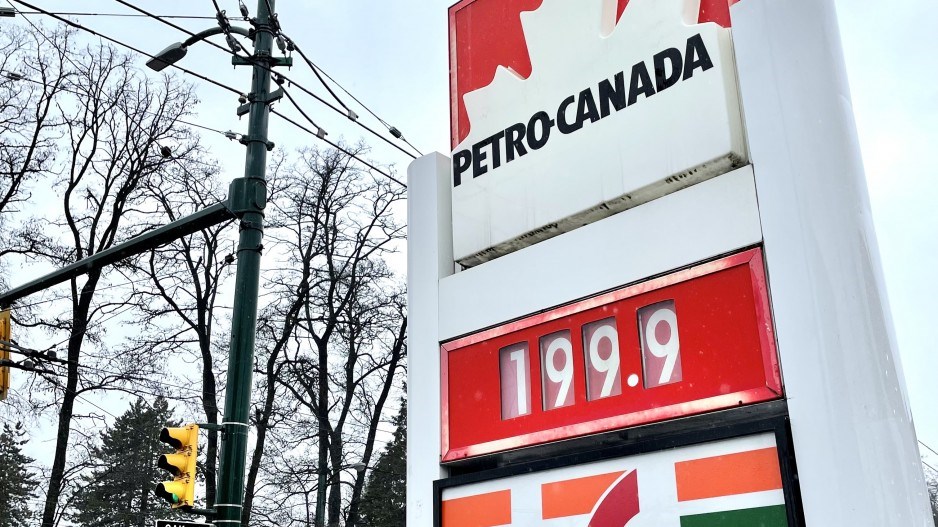B.C. drivers will get $110 in ICBC rebates in May to help them cope with high gasoline prices. Commercial ICBC insurance holders will get a $165 rebate.
Premier John Horgan and Solicitor General Mike Farnworth announced the one-time rebates Friday to help British Columbians drivers cope with soaring gasoline prices. In total, ICBC will rebate back $395 million to B.C. drivers.
"These small contributions will be large for many people across British Columbia," Horgan said.
Gasoline prices have broken North American records in Metro Vancouver, thanks to war in the Ukraine roiling global oil markets.
Gasoline prices are expected to tick down by three cents Saturday, according to GasWizard, after hitting an average of $1.99 per litre this week. But global oil prices are ticking back up, so higher gasoline prices are sure to follow. And on April 1, B.C.'s carbon tax will go up, adding one cent to the price of regular gasoline.
Given that British Columbians pay disproportionately high taxes on gasoline, Horgan has been under pressure to cut gas taxes, as Alberta has done.
Horgan has rejected that idea, saying the tax cuts in Alberta haven't actually resulted in lower gasoline prices.
"We were reluctant and, in fact, would not amend the taxation because it would just be filled by an increase in prices at the pump," Horgan said. "And we saw that in Alberta, where the government promised a thirteen-cent tax reduction on a Monday and on a Wednesday the price went up fourteen cents."
Thanks to a restructuring, ICBC is now flush with cash, so the Horgan government has decided to use some of its profits to issue a one-time rebate. ICBC insurance holders shoud be getting the rebates in May.
In opposition, Horgan slammed the Liberal government for requiring Crown corporations like ICBC and BC Hydro to pay the government dividends, and after forming the government, the Horgan government implemented a new policy forbidding the government from raiding Crown corporation coffers.
Asked if the government is not now using ICBC like a "piggy bank" in the same way the previous Liberal government did, Horgan said: "I don't believe we are."
"We brought in legislation to prevent future governments from dipping into reserves at ICBC to pad their budgets. What we're doing here...(is) giving money bacdk to the policy holders."
Even before Russia invaded Ukraine, triggering an energy crisis, oil prices were already rising, due to supply unable to meet the sudden increased demand from economies in recovery from a pandemic-incuded contraction.
Russia is a major oil producer, and the uncertainty over supply has pushed the benchmark Brent crude to US$130 per barrel the first week of March before shedding about US$20.
But prices are inching back up. Brent crude is closing in on US$120 per barrel, with West Texas Intermediate not far behind at $113 per barrel.
There is always a lag of several days before increased oil prices are reflected at the pumps, so prices in Vancouver could well be headed for $2 per litre in the coming days and weeks.
Vijay Muralidharan, a petroleum analyst and senior consultant at Kalibrate, says nearly half of what Vancouverites are paying for gasoline right now is the cost of oil.
At $2.09 per litre, he said oil accounts for $0.92 cents. Taxes account for $0.57, refining margins $0.52 and retail margins $0.08.




